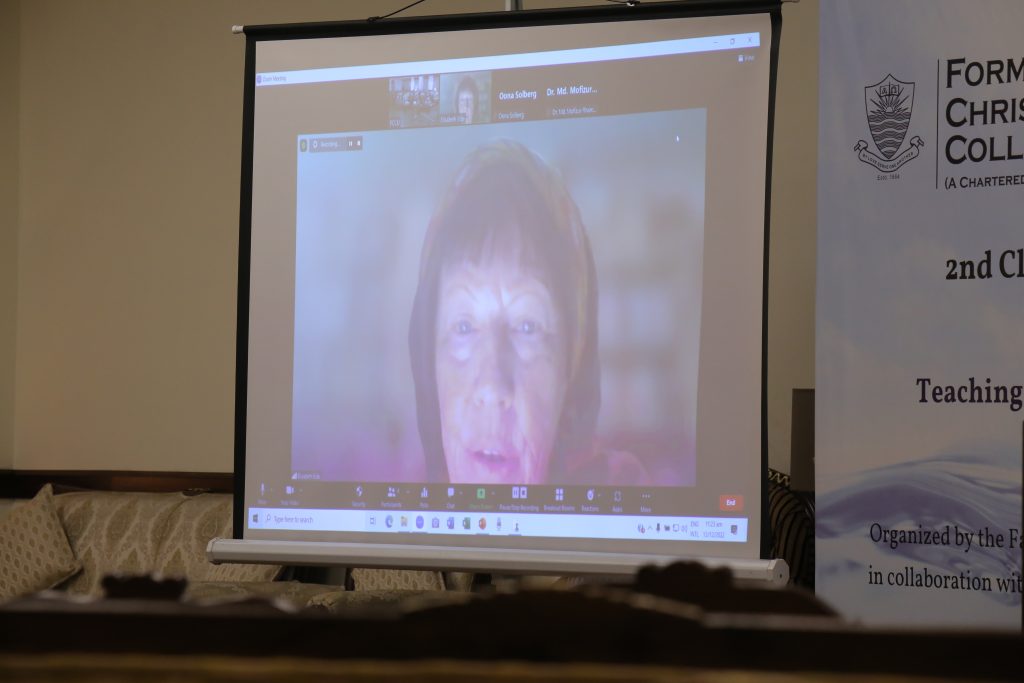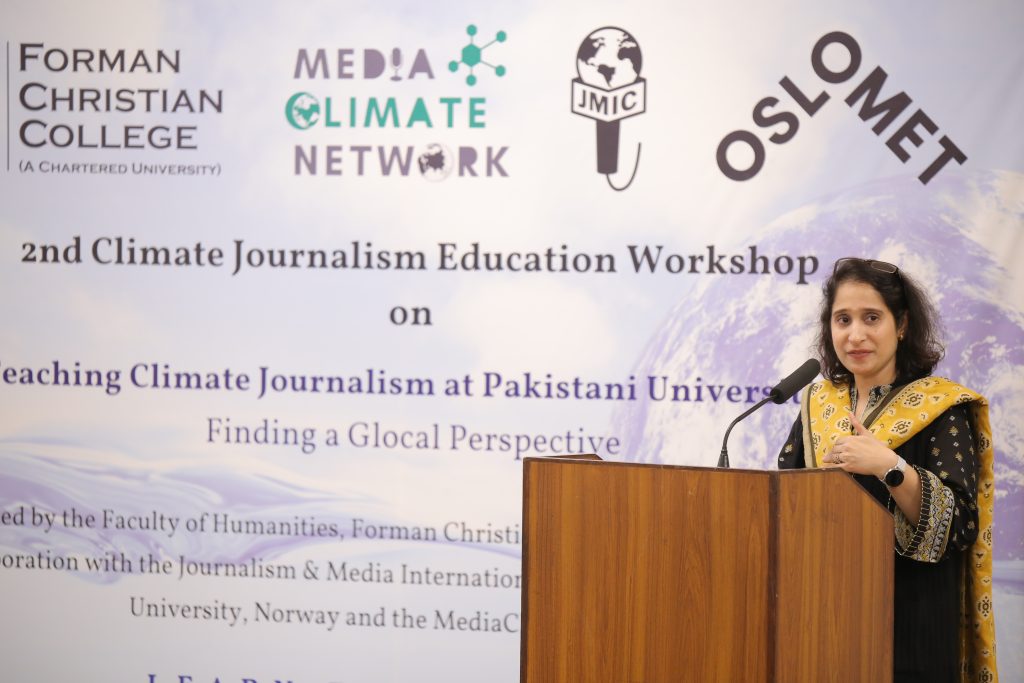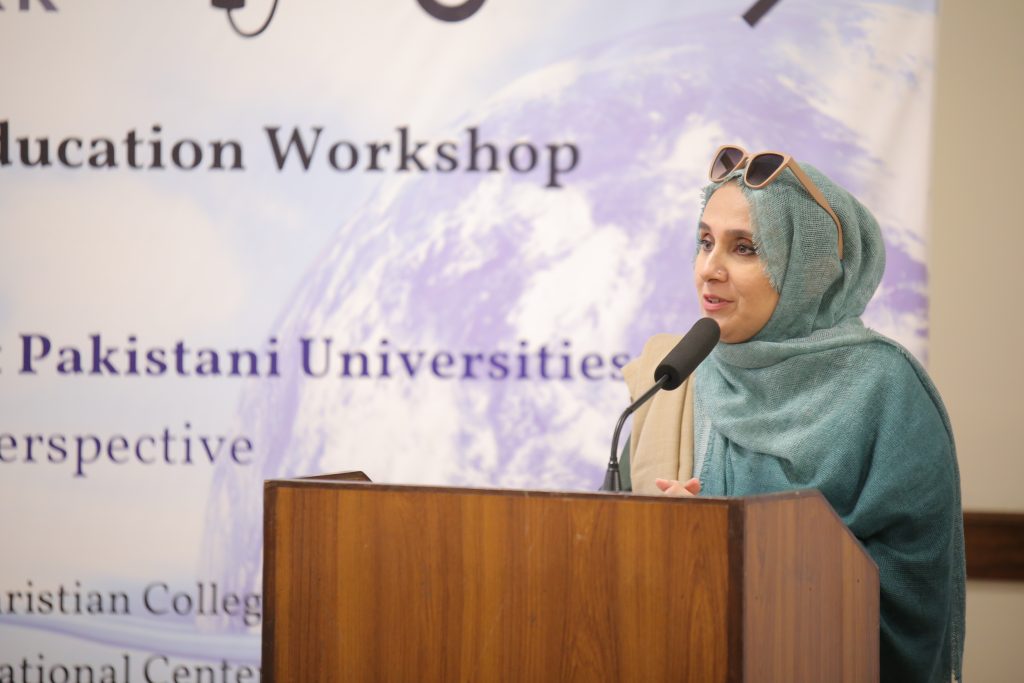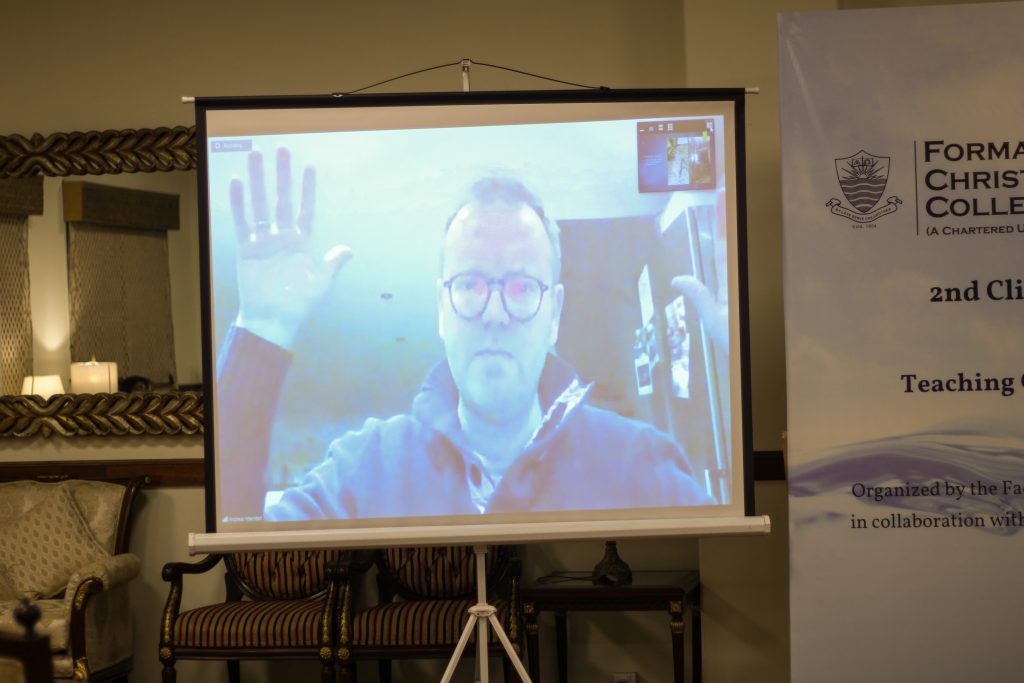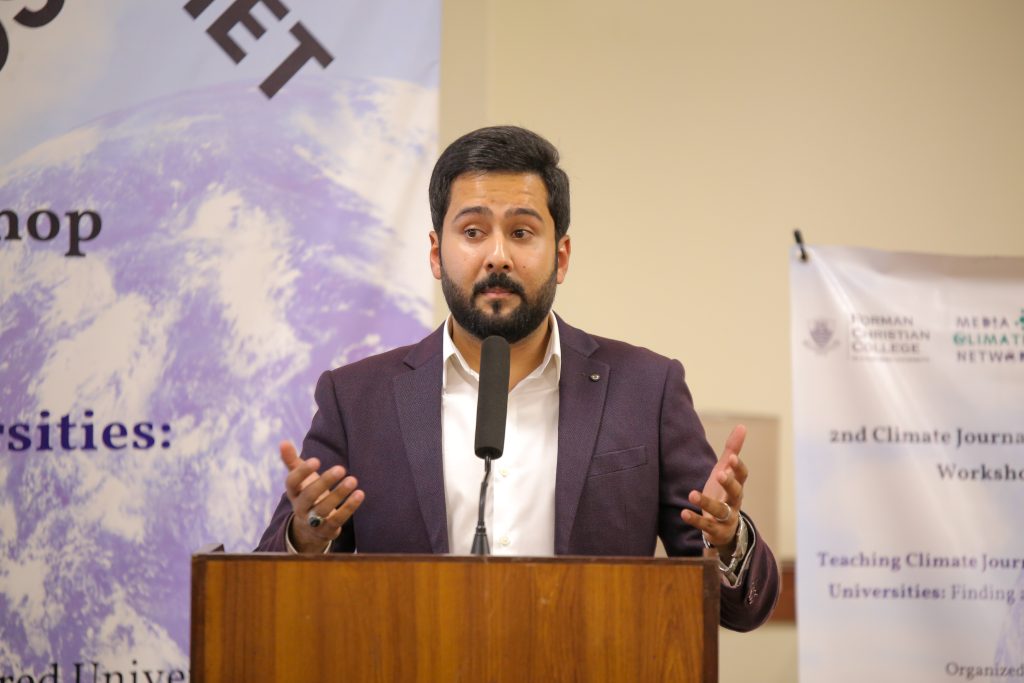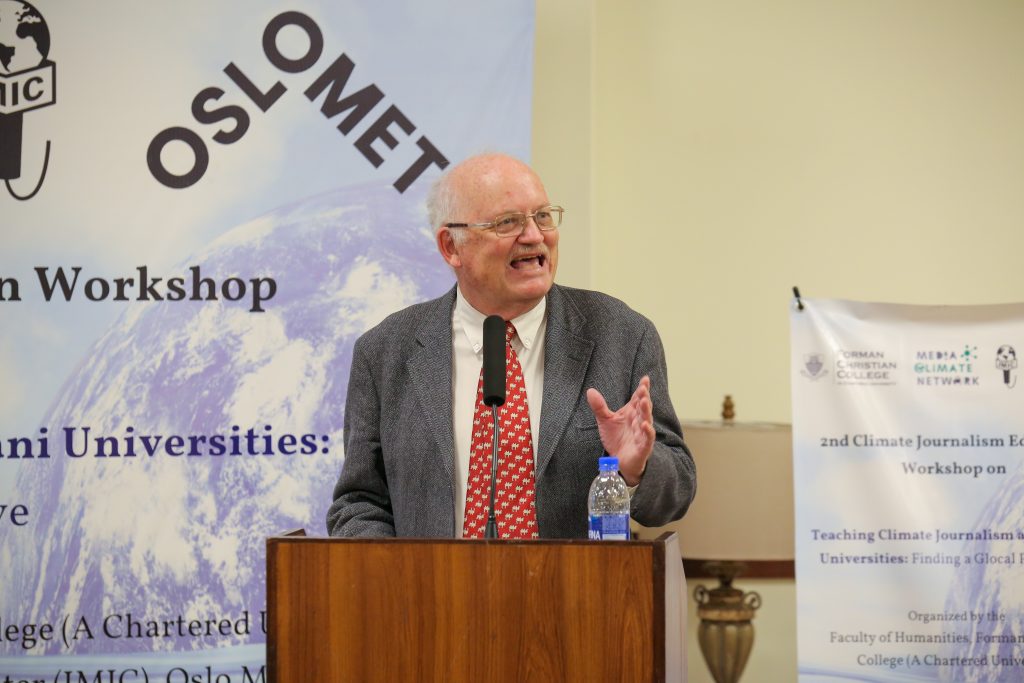
2nd Climate Journalism Education Workshop took place on December 13th, 2022 at Forman Christian College University Lahore, Pakistan in collaboration with Oslo Metropolitan University, Oslo, Norway and MediaClimate Network. The theme of the workshop was designing a course with a glocal perspective. The merger of local with the global topics to develop a course is the best way forward in climate journalism. As mentioned by one international speaker, climate is a global issue. True, there are nations and people more affected by climate changes, as well as more or less responsible for creating the climate catastrophe. But we all share the responsibility to make things better.
The workshop had an international panel of speakers from Pakistan, Norway, and Bangladesh. The speakers were also from different stakeholder backgrounds, academics, journalists, climate activists. The same blend was evident among the participants. A total of 33 participants were invited for the workshop, out of these 27 were outside FCCU while 6 FCCU mass communication faculty also participated. Out of the 27, there were national participants from outside Lahore, namely one from Karachi, two from Multan, two from Kohat in Khyber Pakhtunkhwa, three from Islamabad, and one from Peshawar. The gender ratio was 21 female and 12 male. 30 of the participants were awarded certificates for full day participation and interaction, 19 female and 11 male. There was one expert participant from India who kindly offered a joint Pakistan-India workshop in the near future.
The format of the workshop was hybrid, with speakers and participants contributing in person as well as online. The structure of the workshop was interactive, which fit the group of well-informed academics and journalists. The presentations focused on presenting different course structures and practical and theoretical aspects of the climate related issue. Climate journalism courses from Bangladesh, Norway, and Pakistan were presented and discussed. At the same time national and international journalists presented different practical ways of doing climate journalism. Representative of the transnational Third Pole Network office in Pakistan gave a detailed analysis of how to pitch and sell climate stories. Pakistani journalist shared the experiences and techniques of presenting climate related stories from the Northern Pakistan, bordering Afghanistan, with a special emphasis on visual aspects.
As for the courses presented, almost all themes related to the skill set for covering climate in the media were discussed. As from Bangladesh we got a blend of theory and practice, well blended for the needs of a local student and media, the Norwegian lecture focused on themes like climate justice, and the psychology of communication in terms of short and long term retention. The FCCU courses were for both undergraduate and post graduate levels. These focused on spreading the climate related themes throughout other courses like development journalism, communication, production related courses.
The discussion remained student focused. It ranged from market needs to editorial preferences, to ensuring students’ interest in climate journalism courses. Alongside this practical debate, the discussion also considered the place of climate journalism in the market. Discussants spoke about advocacy and public relations, the question of subjectivity in topics like climate, peace, and possible topics falling more under the umbrella of advocacy than journalism. These considerations came down to the final section of the workshop where group presentations were made. In the group presentations the presenters emphasized upon market as well as theoretical aspects of the courses. One important recommendation was to have a phased learning process by introducing entry level courses and build upon these to the higher level, undergraduate and post graduate. The idea of spreading the themes across relevant courses was also emphasized. There were also recommendations about introducing the courses under the tile of climate communication instead of journalism.
In the final analysis at the closing these recommendations were analyzed. As for climate journalism not being a beat, it was summed up that it is our responsibility as academics to work towards creating a better society. Students are leaders of the present and the future. They are supposed to make a better world, not to fit into the one with faults and wrongs. To retain their attention we need to reconsider our pedagogies and course structures. The importance of climate awareness and our readiness to deal with the causes is immediate and urgent. It cannot wait. We have to bring it to the forefront, not only through teaching students but also spreading awareness in society.
And finally the question of advocacy and the much debated idea of mixing journalism with communication in general. There is a fine line between advocacy and reporting. One may cross this in any beat if one is not cautious enough. Even hooting for one political party or ideology will land a journalist as advocate or a spokesperson instead of a vehicle of information for the audience. It is no different for climate. One should always understand that journalism is about truth, not furthering a cause. A communication professional is never seeking truth. They further the best interest of their organizations. Their professions give them the room for such luxuries. Journalism is the pursuit of truth for the sake of the readers, who look up to our work for guidance, clear decision making, and active citizenry in democratic dispensations. We need to honor this trust, be it in the field or preparing the young truth seekers for the future.

